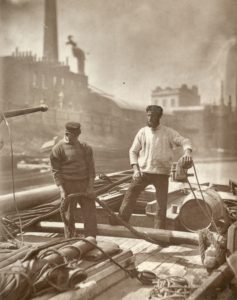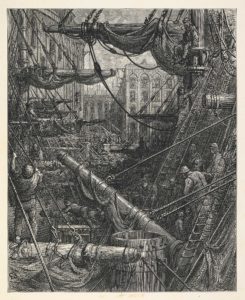London Romanticized
Wordsworth’s poem “Lines Composed Upon Westminster Bridge” paints a picture of London much different than many of the other writers or artists we have read from for this class. Rather than depicting a dirty, poor, and overpopulated city, Wordsworth gives the impression that London is just another fixture part of England’s natural beauty. That said, he writes about London in this poem using very romantic language and imagery. The first line of the sonnet alone is enough to show the reader this romantic nature of the poem: “Earth has not anything to show more fair.” In this line, the reader is told to think of London as a part of the Earth; not just the world, which would take away form the natural imagery Wordsworth is so accustomed to invoking. The hyperbole of this line is also evident to me right away, and tells me that this poem is absolutely romanticizing London. Throughout the rest of the poem, Wordsworth using other words such as, “majesty, beauty, bright, glittering, and mighty” to promote this glamorized, romantic image. He compares it images from nature: “Never did sun more beautifully steep /
In his first splendour, valley, rock, or hill.” This stands out to me especially, given that romantic poetry valorizes nature. Here, Wordsworth is talking about the collections of “Ships, towers, domes, theatres, and temples,” which are obviously not natural objects or wonders. Perhaps most especially notable is line eight, where he states the city is, “All bright and glittering in the smokeless air.” The fact that he calls to attention the air quality as “smokeless” tells me that the rest of the poem is trying to make out London to be something that it is not; he is trying to prove that London is not what others make it out to be.

